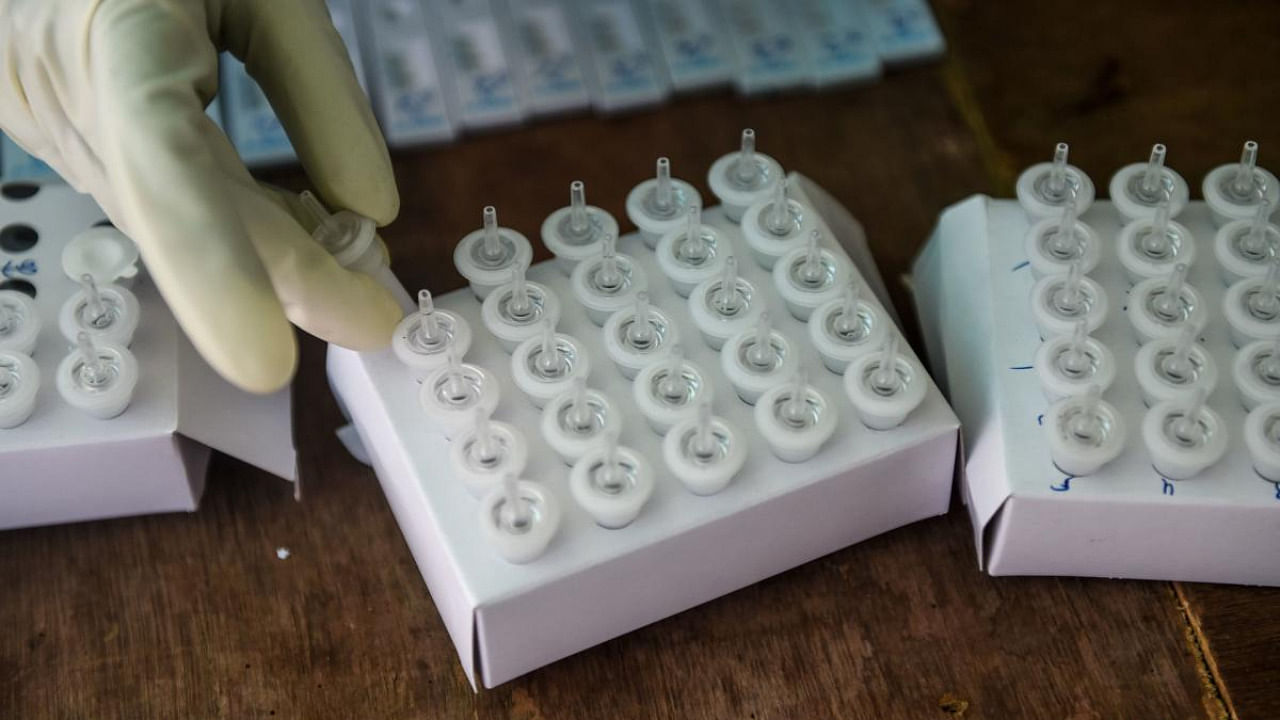
Deployment of rapid antigen tests for Covid-19 diagnosis can be as effective as the gold standard RT-PCR tests, provided such point-of-care tests are done on a sufficiently large number of individuals, according to a new study.
Despite the bad press they got in the last few months, the rapid antigen tests are not such a bad thing if carried out in sufficiently large numbers and those tested positive are isolated, it says.
On the plus side, such a strategy would have the additional benefits of monetary savings for the administration and avoiding the critical delay in getting RT-PCR results. Nationwide, nearly 49% of the tests conducted are RAT, but states like Uttar Pradesh and Bihar use a higher proportion of such tests, fetching them criticism from several quarters because RAT are less sensitive and typically miss out around half of the cases.
“We suggest that going the RAT route was the right choice to make, vindicating what these governments (UP and Bihar) did, but also suggest that the true gains will come only when testing at somewhat larger amounts than they did or continue to do,” Gautam Menon, a professor at the Institute of Mathematical Sciences, Chennai and lead author of the study told DH.
Menon and his colleagues from the Ashoka University, Sonepat and National Centre of Biological Sciences, Bangalore arrived at the conclusion on the basis of a realistic epidemiological network model in which the possibility of Covid-19 infection and detection in a network of people at home, office or transport can be examined.
The researchers ran the model with various levels of RAT sensitivity (50-90%) and the number of people tested.
The results demonstrate that judicious use of RATs can yield epidemiological outcomes comparable to those obtained through RT-PCR-based testing and isolation of positives, provided few conditions are met such as testing 0.3-0.5% of the population, isolating those tested positive and following Covid-appropriate behaviour like wearing face masks and maintaining social distancing.
"Since RAT costs nearly half of the RT-PCR, it saves money. Also being a point-of-care test, there is no delay in getting the results. This is important because the benefits of RT-PCR can be offset by the delay. Even a RAT with 50-60% sensitivity can provide good results and with the money saved, more such tests can be deployed,” said Menon, also a professor at Ashoka University.
The study has not yet been peer-reviewed but released on a preprint server.
